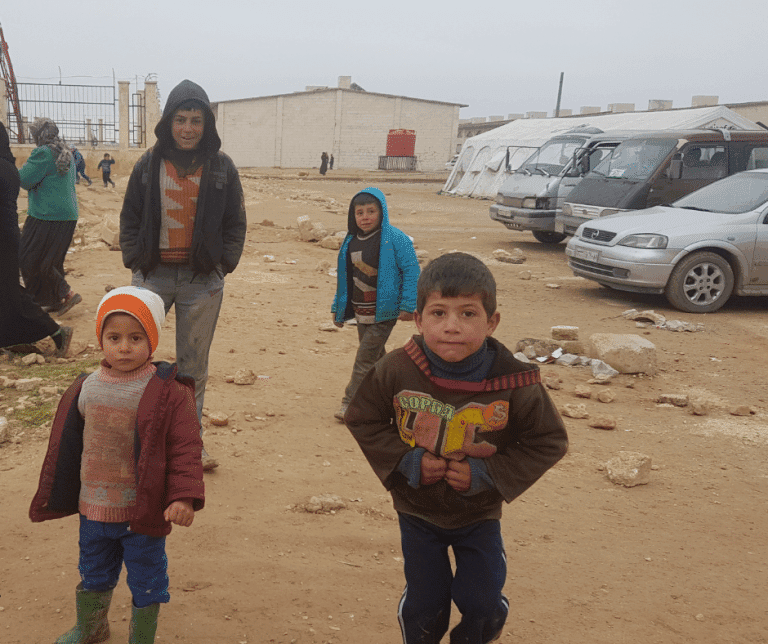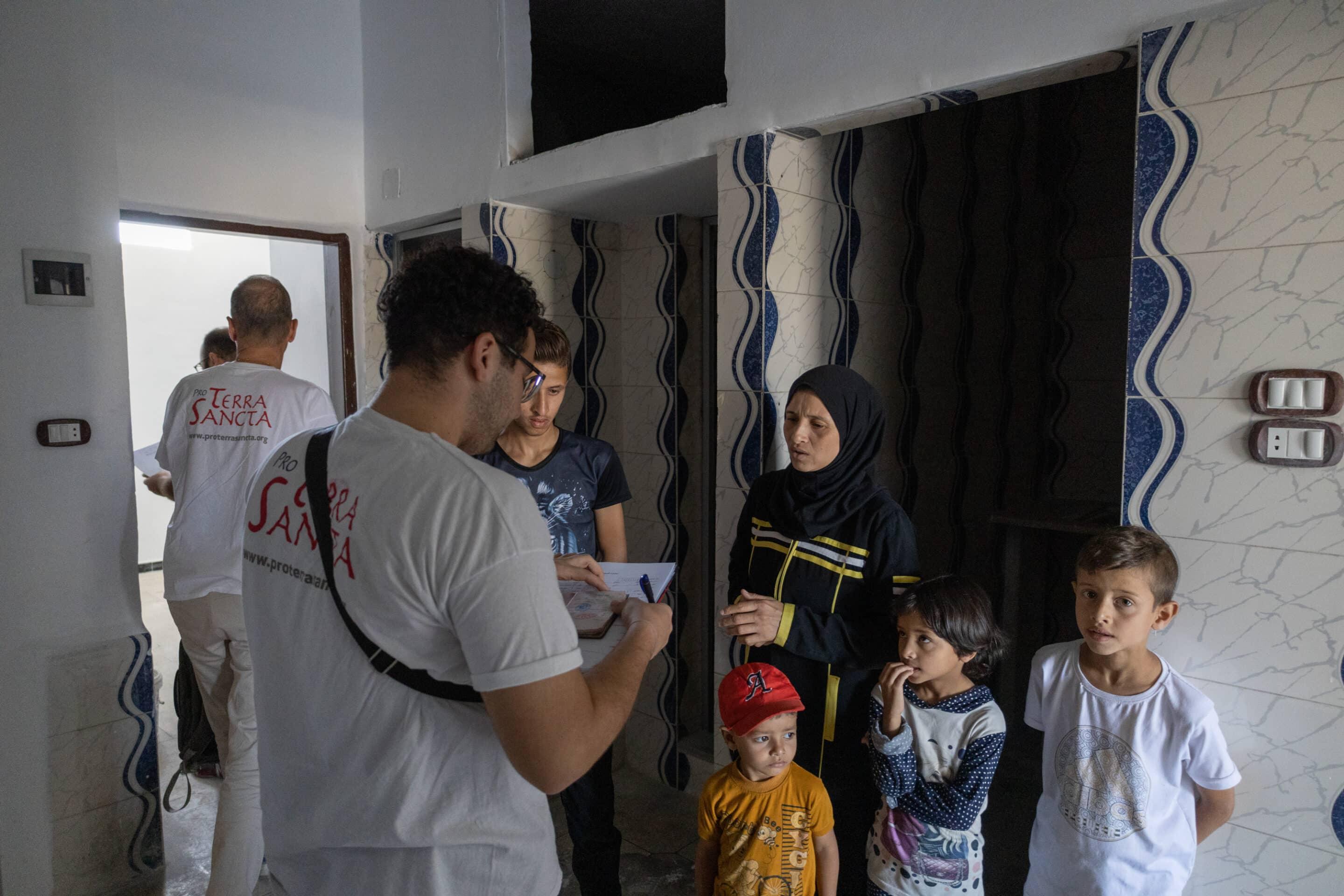In December 2016, Syrian government troops regained possession of eastern Aleppo. The city was reduced to a pile of rubble, and even today East Aleppo pays the very high price of the reconquest. Here Pro Terra Sancta is committed to helping the most needy sections of the population, through support for the project "A Name and a Future".
The project, born thanks to the joint efforts of the Apostolic Vicar of Aleppo, Mons. George Abou Khazen, of the Franciscan Father Firas Lufti and the Aleppo Mufti Mahmoud Akam, offers care and protection to all orphaned and abandoned children in East Aleppo. In particular, it deals with children born from the frequent episodes of sexual violence suffered by Syrian women during the war, who are often marginalized and despised, along with their mothers, as bearers of sin. Even newborns are frequently prevented from accessing the registry office, and therefore the rights enjoyed by the citizens of Aleppo: the project wants to fight to give these children a name, and therefore a future.
The women, victims of abuse and violence during the jihadist control of the area, are offered a chancefor redemption: when Aleppo was liberated, these women were left alone, unable to provide for theand afraid of the possibility of recognizing their children. In order to be able to start again to live with dignity and autonomy, these women need first of all to work. "A name, a future" therefore offers them paths of professional integration and the start of self-employed activities thanks to microcredit systems. In addition to vocational training courses and the introduction to microcredit, the project provides psychosocial support for the women who join it, to accompany a strengthening of the psychological aspect of trauma processing to the reintegration into the workforce. Work represents the first step towards autonomy and gives women the opportunity to rediscover their own social role and therefore recognition within society, for themselves and for their children.
The Minibus of Life
Next to "A Name for a Future", and inextricably linked to it, is the Pro Terra project Sancta of the "Minibus of Life": this one is also aimed at children forced into situations of crisis and poverty, and this too aims to lay the foundations to offer Syrian children a better future, offering educational support for children forced into child labour.
In Syria there is a very serious school and educational emergency: according to official data, almost 4 million children in the country are at risk of dropping out of school or already out of school. The cost of tuition education in Syria is an unbearable burden for most Syrian families: the average salary of a civil servant does not exceed $15 per month. In addition to the problem of prohibitive costs, there is also the phenomenon of the lack of qualified teachers, many of whom have in fact emigrated abroad following the flow of displacement that hit the country after the outbreak of the civil war. Those who remain are forced to seek new economic income by providing private lessons, and this is often to the detriment of their educational commitment within public or private schools. Families are thus unable to bear the economic burden of a complete education for their children, who in many cases end up giving up, devoting themselves instead to a job that can contribute to the survival of their family.
Pro Terra Sancta, in addition to supporting local schools, has launched a project to contribute to the education and literacy of the children of Aleppo, transforming an old bus into an itinerant school. Once a week – on weekends, to involve the children who work on weekdays – the "Minibus of Life" roams the streets of the city and welcomes dozens of children, happy to be able to go to school for a few hours: educators teach young students to read and write, children learn multiplication tables and the importance of education as a basis on which to build themselves and their awareness as future citizens.






















